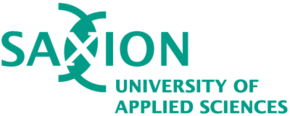Physiotherapy

Do you think movement is important? And do you like working with all sorts of people? Does it appeal to you to motivate and stimulate others to make exercise a regular part of their lives so they stay fit and healthy as long as possible and can continue to participate in work, sports, and society? Then physiotherapy is the programme for you!
During the Physiotherapy programme you will develop knowledge of biomedical science, kinesiology, and behavioural science. With attention for people, your problem-solving ability, and your ambition to continue to develop yourself, you will spend your career helping clients improve their health.
In the Physiotherapy programme everything revolves around movement. You learn all about the body and develop your knowledge of biomedical science, kinesiology, and behavioural science. With attention for people, your problem-solving ability, and your ambition to continue to develop yourself, you will learn to treat patients.
Introduction to the human body and patient care.
The first academic year includes a lot of theory, including the Latin names for muscles and bones. That means quite a bit of rote memorisation... You also have practical lessons in which you begin investigating and treating a client, and you do an internship for half a day per week. So there's plenty of variety!
Practical lessons.
You probably understand that you will be very busy during the physiotherapy programme. With the theory, of course, but above all spending a lot of time practising. The best way to do this is physically, which means on each other! By playing each other's patients, you help each other and yourself. So don't be surprised to find yourself walking around in your underwear during some of the practical lessons!
Important Themes
During your training you will attend lectures and seminars, and you will carry out research assignments on the following themes:
- Prevention. Living a healthy lifestyle with sports
- Participation. Staying healthy at work
- Vitality/chronicity. Resilience in ageing
- Wypis ocen – jeśli wciąż się uczysz i dlatego nie masz jeszcze świadectwa ukończenia szkoły średniej, bardzo ważne jest załączenie wypisu. Szczegółowe informacje na temat sposobu wypełniania tego dokumentu oraz termin jego przesłania znajdziesz tutaj.
- Świadectwo dojrzałości i świadectwo ukończenia szkoły średniej – w przypadku ukończenia szkoły średniej nie potrzebujesz wypisów ocen – wystarczy, że do formularza aplikacyjnego załączysz Świadectwo dojrzałości wraz ze świadectwem ukończenia liceum lub technikum.
Przed aplikacją sprawdź wymagania bezpośrednio na stronie uczelni. W przypadku problemów ze znalezieniem szczegółowych, aktualnych wymagań, skontaktuj się z konsultantami Kastu.
Spełnienie wymagań w zakresie języka angielskiego można udokumentować w jeden z następujących sposobów:
- IELTS - 6.0
- TOEFL – 80
- Zalecane jest zdawanie matury z biologii i/lub fizyki.
Jeśli nie spełniasz tych wymagań, nadal możesz wysłać swoją aplikację - zostanie ona indywidualnie rozpatrzona przez uczelnię. - Proces selekcji, na który składa się:
- assessment (formularz odnośnie umiejętności logicznego myślenia i cech charakteru, które pomogą na studiach)
- list motywacyjny
- interview online
As a physiotherapist you promote good health. You make diagnoses, prepare treatment plans, and guide patients. These include not only young, healthy people with sports injuries but also the elderly and chronically ill. You will also develop new ways to better help special groups of patients, such as athletes – through the use of new technology, for example. You will continue to develop yourself through extra training and refresher courses.
Broad field of work
Physical therapy is a broad field, and therefore you can work for various types of organisations: nursing or care home, hospital, rehabilitation centre, sports club, or an occupational health and safety service. Of course, you can also start your own practice, or perhaps you will choose to work abroad.
After graduation
After completing the Physiotherapy programme, you can continue your studies and pursue a specialised or broader master's degree. Examples of specialised master's degrees are Geriatrics and Manual Therapy. Some examples of broader master's programmes are Health Sciences and Physiotherapy Sciences.
